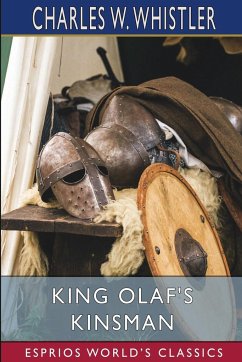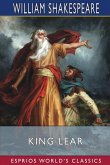Reverend Charles Watts Whistler MRCS, LSA, (1856-1913) was a writer of historic fiction that plays between 600 and 1100 AD, usually based on early English/Saxon chronicles, Norse or Danish Sagas and archeological discoveries. He studied medicine at St Thomas's Hospital, London, and was a Member of the Royal College of Surgeons and a Licentiate of the Society of Apothecaries. After practicing as a surgeon he was ordained deacon in 1884 and priest in 1885. He then served as a clergyman in a succession of parishes. Whistler was interested in the history of England before the Norman Conquest and this is reflected in the subject matter of his prolific work as a historical novelist.
Hinweis: Dieser Artikel kann nur an eine deutsche Lieferadresse ausgeliefert werden.
Hinweis: Dieser Artikel kann nur an eine deutsche Lieferadresse ausgeliefert werden.







